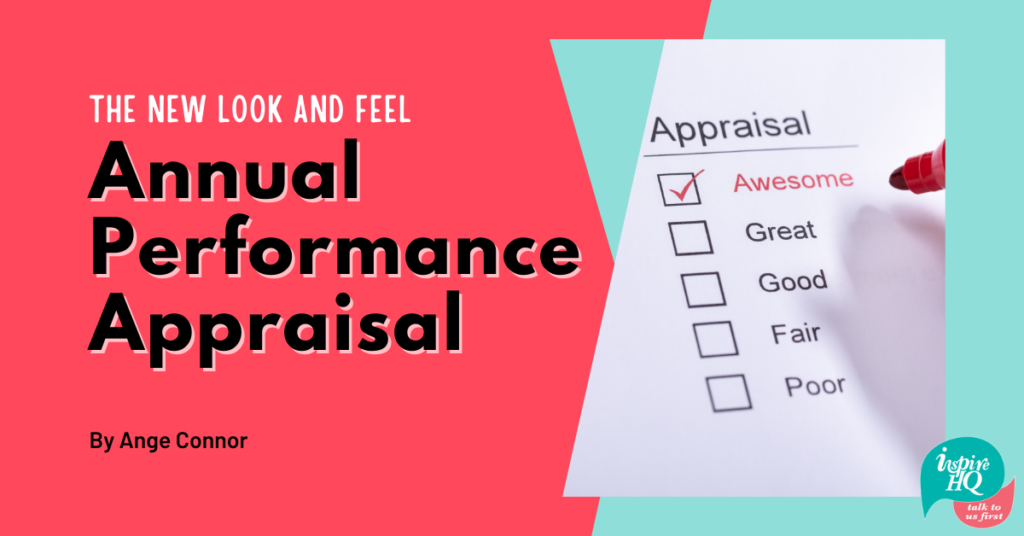It’s coming up to that time of year again, the annual performance appraisal. Love them or hate them, this year the performance appraisal is more important than ever. After two years of COVID, and whether you believe in the great resignation or the great re-alignment, because of these significant influences, the world of work has changed significantly and our employees are thinking differently about work and their priorities.
Unemployment is low, people have been leaving their jobs for a multitude of reasons and it’s near impossible to fill vacancies. Never in all my years in the recruitment industry have I seen such a candidate short market. Your employees have choices in this market, and lots of them. Which is exactly why if you want to have any chance of keeping your people, this year the performance appraisal needs to look a little different.
To help you prepare for conducting performance appraisals this year, here are my top 3 tips:
- Genuine Career Conversations
We often hear from employers and employees that they feel like the annual performance appraisal is just a tick the box process, the sooner you can get it off your to-do list the better. The employee fills in a form that has been the same form for the last 10 odd years, we tick the boxes, we skim over it, negotiate a salary increase and away we go for another 12 months. This is exactly how to disengage and demotivate your employees.
In 2022 the performance appraisal needs to be about genuine career conversations and active listening on behalf of the employer. I know a lot of managers tend to shy away from these harder genuine career conversations and don’t know how to have them, but if you are a manager conducting a performance appraisal, it’s time to step up and ask the hard questions and you may need to be prepared for hearing some responses that you might not like. Yes, you could be opening a can of worms, but better you open that can of worms and have the opportunity to do something about it rather than continue to lose valuable employees.
These genuine career conversations are about what’s important to the employee, what’s changed for them over the last couple of years, what’s important to them and what they value, and how they want to work (remote, WFH or hybrid)? What are their career priorities; what’s working and what’s not? What do they want and need?
You might not be able to give them everything they want, but again the importance is about them feeling heard and valued and trying to find that happy medium.
- More care, less formality
Employee surveys are telling us that employees want to feel valued and the focus is on doing meaningful work. Our employee value proposition is more important than ever and it’s not simply about the dollars.
Instead of simply sending out your performance appraisal form, requesting it back prior and having a traditional stock standard meeting in your manager’s office or via zoom, it’s time to make a little more effort. Think about the employee, ask them, and mix things up a little. Maybe it’s a coffee meeting at the employee’s favourite coffee spot, maybe it’s meeting the employee in person halfway between their home and work so you can better connect with them rather than meeting online. Maybe it’s a walking meeting. Let your employee choose. This shows you are making an effort and not just scheduling the appraisal, one after the other to get them done. Allow plenty of time for conversations to blow out, you don’t want to feel rushed. Connection is more important than ever.
- The year prior, the short and long-term ahead
One of the problems with the annual performance appraisal process is that it’s hard to reflect on the last 12 months, who can remember what they were working on, what they did well or didn’t do well last July – August? It is, however, important to focus on the previous 12 months, not just the last few weeks or months that are fresh in our minds. This takes preparation and time to really remember what happened in those early months.
My motto is that there should be no surprises at the annual performance appraisal if you have done your job well and provided feedback to your employees in the moment. There is nothing worse than at the annual performance appraisal, providing some feedback that is about something that happened months or a year ago. It’s a big demotivator and disengaging for the employee.
The focus should also be on the future, both short and long-term. Not just the next 12 months. Does your employee have longer-term goals and dreams? How does that fit with their career and work? How can you support those goals and dreams? Understanding their goals, motivations and priorities helps you then provide meaningful work and allocate work and projects that might better align with what is important to them. Having clarity around the employee’s role, responsibilities and what success looks like is more important than ever, and if you have executed these three tips well, you’ll understand what success looks like for the employee, not just for the business.
This year’s performance appraisal will be key to enhancing employee engagement and retention, as well as setting up the employee and the business for success in the year ahead. My biggest piece of advice is to not let the conversation stop post the performance appraisal. Don’t wait another 12 months to check in with your employee, keep the conversation going, frequently! A lot can change in 12 months so keep the communication up by having regular, genuine, active listening conversations and don’t shy away from asking the hard questions. They are more important than ever.


